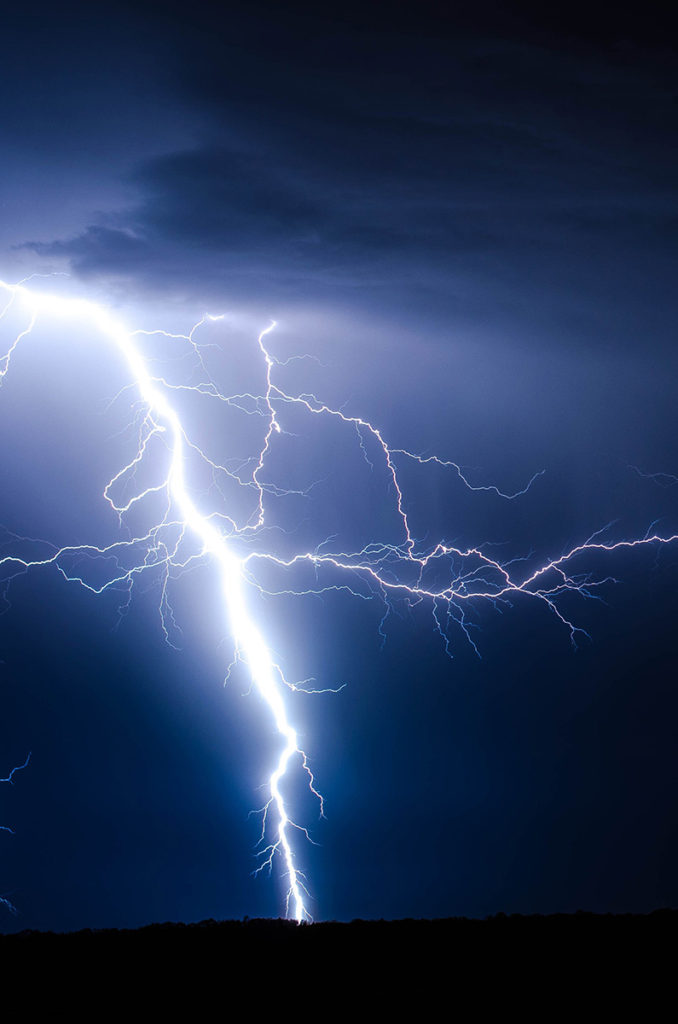
What is lightning? It’s a visible jolt of static electricity that can occur within a cloud, cloud-to-cloud, or between a cloud and an object on the ground. How serious a threat is lightning? The Insurance Information Institute reported 3,199 damage claims from lightning in North Carolina alone in 2108, with a total dollar amount of $36.1 million, and an average cost per claim of $11,561. Nationwide, lightning ignites about 23,000 fires annually, costing nearly $451 million in property damage. Of these, 19% are residential property fires. So in addition to being dangerous to life and property, lightning is also very expensive. Lightning strikes pose multiple dangers to homes and their occupants, including:
- Appliance damage from power surges
- Risk of electrocution death to people in the house
- Fire risk to structures
- Water damage to structures following fire department intervention
- Mold hazards if structures are not dried swiftly after fires are contained
Some folks say it never pays to stress about things over which you have no direct control. There is truth to that notion, however when it comes to lightning strikes, there are a few things you can control to give yourself and your home some protection. Let’s take a look.
Install a lightning rod protection system
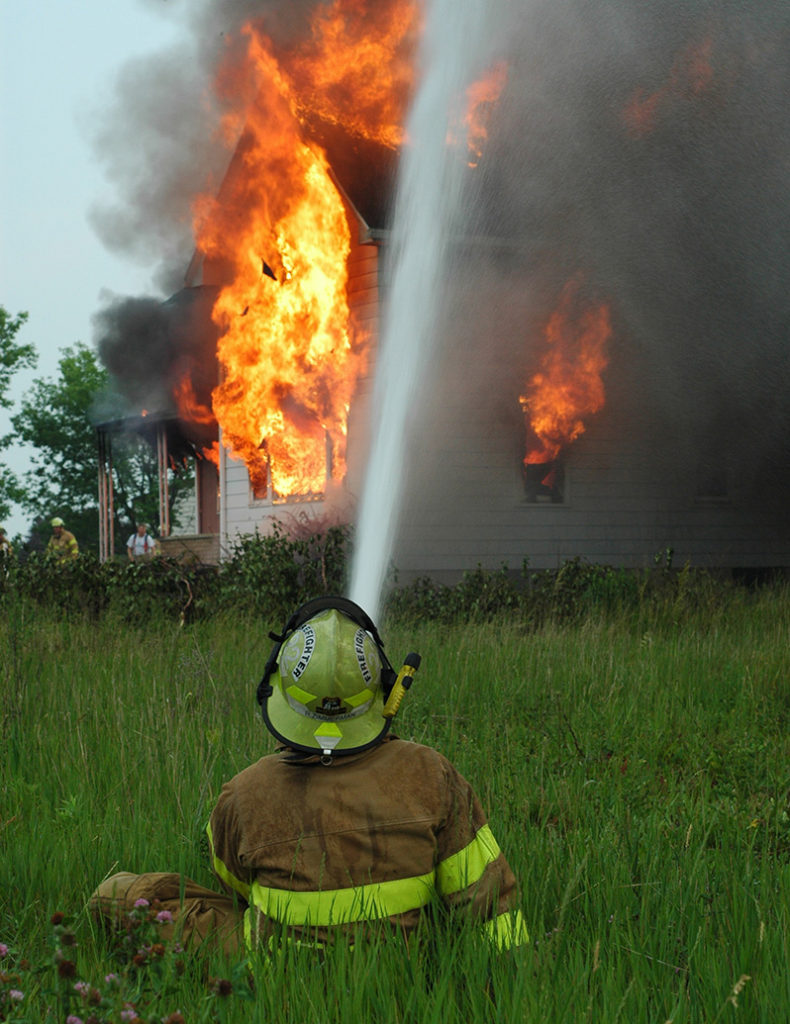
Most lightning protection systems begin with a lightning rod. The function of a lightning rod is quite simple. The massive electrical discharge from lightning seeks the path of least resistance to the ground. A lightning rod provides that path of least resistance, directing the current away from your home and appliances safely to a grounding rod sunk into the earth. A lightning rod system consists of a metal rod on the roof, thick conducting wire, and a long copper rod buried in the ground next to your home. Since the components are all excellent conductors, the electrical discharge can pass safely to ground without causing heat damage. The components for lightning rods can be purchased at hardware and home supply stores. However, if you’re not comfortable doing it yourself, a quick Google search for “lightning rod installers Asheville, NC” will yield multiple results. Be sure to ask your homeowner’s insurance agent if installing a lightning rod on your home has any insurance advantages.
Whole house surge protection
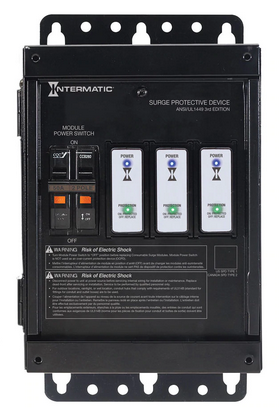
In addition to a lightning rod, whole house surge protectors can offer some protection from surges associated with lightning. While they are not intended to protect your electrical system from a direct lightning strike on your home, they do protect against surges that may result when lightning strikes nearby electrical transformers. Whole house surge protectors alone are not effective against lightning strikes, but when paired with a lightning rod system, they offer additional peace of mind. Whole house protectors are installed to protect your main electrical panel from surges. When a surge trips the device, the energy from the surge is sent out through a grounding wire to the earth, rather than into your electrical panel. Two protectors should be installed for maximum protection. The first goes between your utility lines and your home’s electrical panel. The second goes between the electrical panel and your appliances. The second surge protector is important, because many surges originate from inside your home and can affect electronics and appliances connected to the system. Whole house surge protection is not a do-it-yourself project. It need to be installed by a licensed electrician.
Point of use surge protection
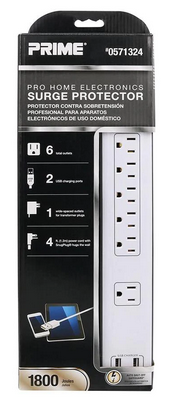
A third line of defense is point of use surge protectors that you plug into wall outlets and then plug in sensitive devices, such as computers and other electronics. They don’t require professional installation. Just buy them at hardware or home stores, plug them in, and you’re ready to go. If lightning strikes, these devices can catch any stray voltage that sneaks past the lightning rod system and the two whole house surge protectors.
Thunderstorm safety tips
Even a complete system such as described above is NOT 100% protection against lightning strikes. Here are some additional safety tips.
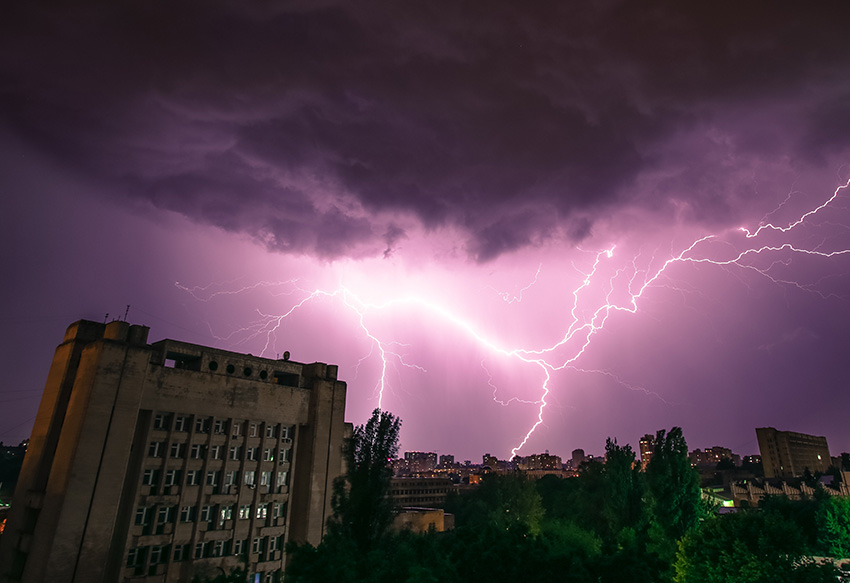
- The only total protection for your devices is to unplug them in a storm. Disconnect computers and telephones from electrical outlets and phone lines.
- Don’t use corded phones, computers or any equipment that puts you in direct contact with electricity during storms. Lightning can enter your home through these devices if it strikes nearby electric or phone lines. Unplug them whenever possible.
- Stay away from windows.
- Avoid activities that put you in contact with running water, such as washing your hands, taking a shower, washing dishes, or doing laundry. Lightning strikes can cause voltage to run through your plumbing system.
A combination of the protections described above and good, common sense goes a long way to protecting your home, your appliances, and you from the hazards of lightning.
Call Peter Young Home Inspections
Buying or selling a home? Get an inspection first! Call Asheville Home Inspector Peter Young, 828-808-4980, or click here to make an appointment today.